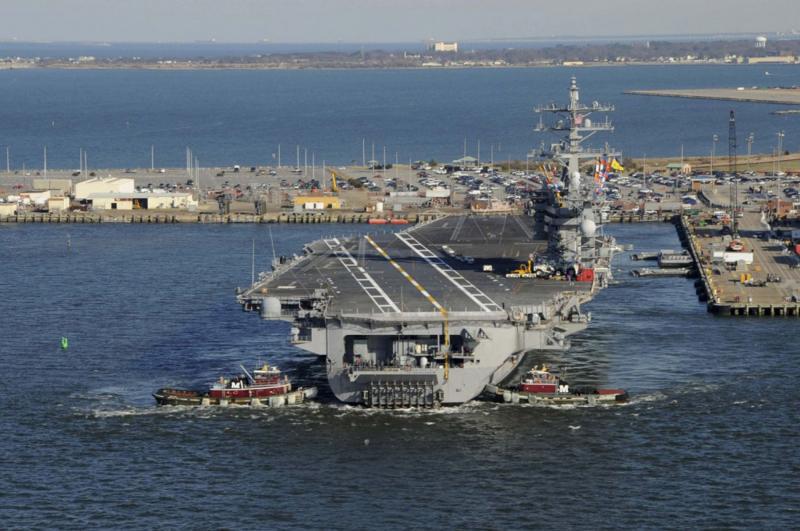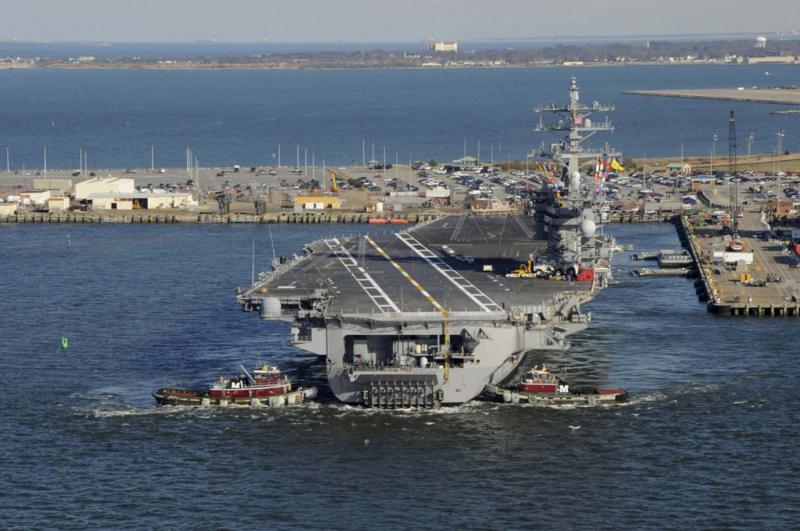Iran crossing the line from bravado to absurdity
There is a fine line between bravado and absurdity. Iran has crossed that line in its battle of wits with the United States, resorting to fake news and postdated videos, to mark points in its favour.
In manipulating the truth -- the first casualty in any conflict -- the regime in Iran is showing how desperate it has become to demonstrate to its domestic audiences that it has the means to back its hyper-inflated rhetoric with deeds.
The Iranian leadership is, however, likely to find itself increasingly in a difficult position, unable, despite all the revolutionary bravado and doublespeak to do anything concrete about being on the receiving end of some of the strictest US sanctions ever imposed. Not only on itself but the sanctions will punish third countries identified as doing business with Iran.
There is quite a lot that the Iranians could do to end the sanctions and dispel the animosity that exists between it and the West and primarily between it and the United States. Iran could abandon its blatant support of terrorism, place its nuclear desires on the back burners and join most of the world’s countries in peaceful coexistence. Granted, this is a tall order and is much easier said than done.
Iran, with its majority Shia population, has legitimate fears of its Arab (and mostly Sunni) neighbours. The 7-year war Iran fought against Saddam Hussein’s Iraq cost it close to 500,000 men. The leadership swore after that horrendous experience that it would never allow itself to fall in such a vulnerable situation again.
Thus, Iran’s obsession with nuclear arms and Tehran’s insistence to develop a nuclear deterrence is understandable. However, just as Iran holds deep distrust of its Arab neighbours, so, too, do the Arab countries bordering Iran have the same level of trepidation of Iran that Iran has of them.
What makes Iran’s case to join the nuclear club a non-starter for Western powers is the lethal cocktail of nuclear weapons and terrorism that Iran concocts. That is simply not acceptable.
As the leadership, particularly the Islamic Revolutionary Guard Corps (IRGC), struggles amid its impotence, it creates, as one observer put it, “a very discrediting and ultimately destabilising” situation for the Tehran regime to save face.
There are pressure release valves the regime could resort to. It can -- and does -- engage in blocking social media and in controlling the traditional media. US intelligence officers tasked with monitoring Iran said all e-mail messages in and out of the country are monitored. To that end the government uses some 30,000 basij volunteers. Talk about a waste of resources and a high level of paranoia.
Ultimately, the Iranian people, like those in every country struggling under authoritarian rule, find a way to bypass the censorship. They know when their rulers are lying and when the anachronisms they live under are not just a matter of a doctored date on a video.
As one expert put it: “They know when a whole regime is outdated if not just plain expired.”
The latest saga in Iranian-produced fake news centres on footage of a US aircraft carrier in the Gulf, which Iran claimed it filmed with a drone but, the US Navy said, the video appears to be "several years old."
The video was shot with a military drone, Iran's Tasnim News Agency claimed in a report that included imagery purportedly from the surveillance flight.
The Iranian news report does not mention the carrier by name but the ship’s identification number “69” is clearly visible. The US Navy says that would be the USS Dwight D. Eisenhower (CVN 69), a nuclear-powered carrier last deployed in the Gulf several years ago.
The report came during nearly three weeks after Washington designated the IRGC a "foreign terrorist organisation" and added it to a long blacklist of companies and individuals the United States is monitoring. Wasting no time, Tehran branded US troops "terrorists."
The IRGC is an ideological military force operating in parallel to Iran's regular army. It is tasked with providing protection in the Gulf as well as protecting the Strait of Hormuz, one of the world’s busiest shipping lanes through which much of the world’s oil and gas production transit daily.
Claude Salhani is a regular columnist for The Arab Weekly.
This article was originally published in The Arab Weekly.



